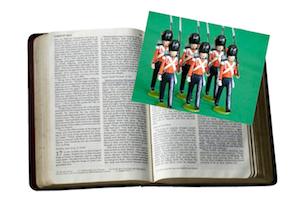 Where united Israel had been able to hold its own against the surrounding nations, the divided kingdom of Israel and Judah had little chance of survival. Even the kings that came to have some military success could only boast of reclaiming the territory which David had previously conquered.
Where united Israel had been able to hold its own against the surrounding nations, the divided kingdom of Israel and Judah had little chance of survival. Even the kings that came to have some military success could only boast of reclaiming the territory which David had previously conquered.
While God often acted on behalf of his people, neither righteousness nor faithfulness related directly to military success. Some evil kings were successful warriors. Some good kings lived through very difficult times. It is true, however, that when a king truly sought God, God would bring deliverance (though, interestingly enough, that deliverance rarely involved Israelite or Jewish fighting forces).
The regional powers were Assyria and Egypt, with Babylonia waiting in the wings. Even under David, Israel had only been a power in its own neighborhood. Whereas God used foreign powers to punish Israel, He rarely used Israel and Judah in the same way. God’s prophets could denounce foreign powers, but God’s people were not sent as agents of punishment against them. Violent punishment was carried out, at times, against the unfaithful within the borders of the Promised Land.
This period is a bloody period, principally because of the unfaithfulness of God’s people. Because they were untrue to the Covenant, they lost the protection that Covenant promised and received the foretold punishment.
The time of the divided kingdom provides the historical context for the prophets, that we’ll look at later.

